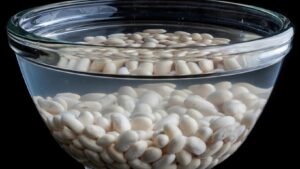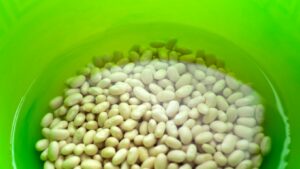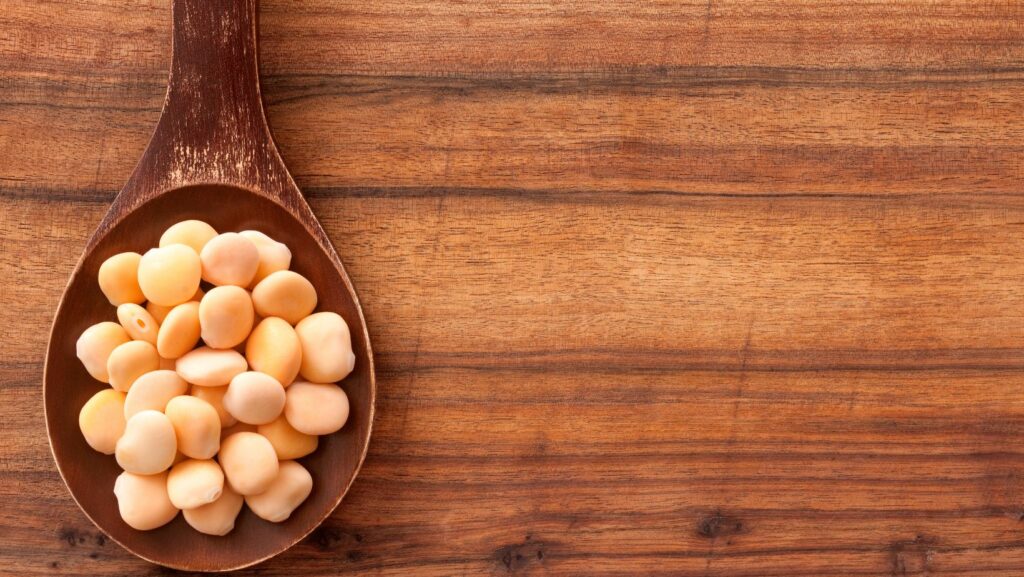Ever wondered why your grandma always insisted on soaking beans overnight before cooking? Or perhaps you’ve skipped the soaking step in a hurry, only to find the beans still hard after hours of cooking? This article will explore what happens when you don’t soak beans before cooking, and why it might be worth the extra effort to do so.
From the science behind the soaking process to its impact on cooking time and nutritional value, we’ll delve into the nitty-gritty of this common culinary practice. So whether you’re a seasoned chef or a cooking novice, prepare to discover the secrets behind the humble bean and its soaking ritual.
What Happens If You Don’t Soak Beans Before Cooking

Firstly, beans that aren’t soaked before cooking take noticeably longer to cook. They often require twice the cooking time as their soaked counterparts. Secondly, unsoaked beans might produce inconsistent texture, with some beans being cooked thoroughly, while others remain hard. It’s largely related to the variability in size and age of the beans used. Thirdly, the lack of soaking can contribute to increased gas and bloating after consuming these beans, attributed to the excess quantities of specific sugars, oligosaccharides, that the human body finds tough to digest. Finally, without soaking, beans might lose some of their nutrient density. The heat from prolonged cooking can degrade valuable nutrients, such as Vitamins B and C. To sum up, failure to soak beans can affect cooking time, digestion, consistency, and nutrient content.
Effects on Cooking Time and Texture

Neglecting to soak beans prior to cooking markedly affects both cooking time and texture. On average, unsoaked beans require an extended span of 1-2 hours of cooking, compared to their pre-soaked counterparts which demand roughly 30-60 minutes, as demonstrated by the U.S. Dry Bean Council. Furthermore, because beans vary in size and age, the unsoaked variety often culminate in an inconsistent, uneven texture — smaller, younger beans becoming overcooked while larger, older ones remain undercooked. Consequently, soaking beans become crucial for preserving a uniform texture and reducing cooking time. However, texture and time aren’t the only facets affected. Failure to soak beans can also amplify digestive discomfort due to the preservation of unwanted starches and sugars. In the next part, we delve into the nutritional implications of bypassing the bean-soaking process.
Nutritional Impact

Deviating from the soaking process potentially alters bean nutrition. Primary nutrients and minerals, namely proteins, fibers, and iron, risk depletion through a lengthy, uncontrolled cooking process. For example, a significant decrease of up to 20% is expected in these vital nutrients in unsoaked beans, according to a report by the USDA. Besides nutrient reduction, heat-resistant sugar chains, namely oligosaccharides, survive the cooking process, increasing the chance of digestive discomfort. It’s worth noting, however, that soaking isn’t completely loss-proof. It leads to minor nutrient leaching into the soaking water, deemed insignificant when compared to the quality of soaked beans. Soaking also aids in mitigating oligosaccharides, reducing the likelihood of digestive issues. In essence, soaking beans significantly affects the nutritional outcome and the overall digestion process. It’s a small yet vital step in ensuring a high-quality and nutritious meal.
Culinary Implications
Skipping the bean-soaking step isn’t just a culinary shortcut. It’s a decision that can have noticeable effects on the final dish. Longer cooking times and inconsistent textures are just the tip of the iceberg. There’s also the matter of potential nutrient loss and increased digestive discomfort. It’s clear that soaking beans isn’t just about saving time—it’s about optimizing the nutritional value of your meal and ensuring a pleasant eating experience. So, while it might be tempting to cut corners, it’s worth remembering that a little preparation can go a long way. Soaking beans is a small step that can make a big difference in your cooking, nutrition, and overall digestion. Don’t underestimate the power of this simple, yet significant, culinary practice.

